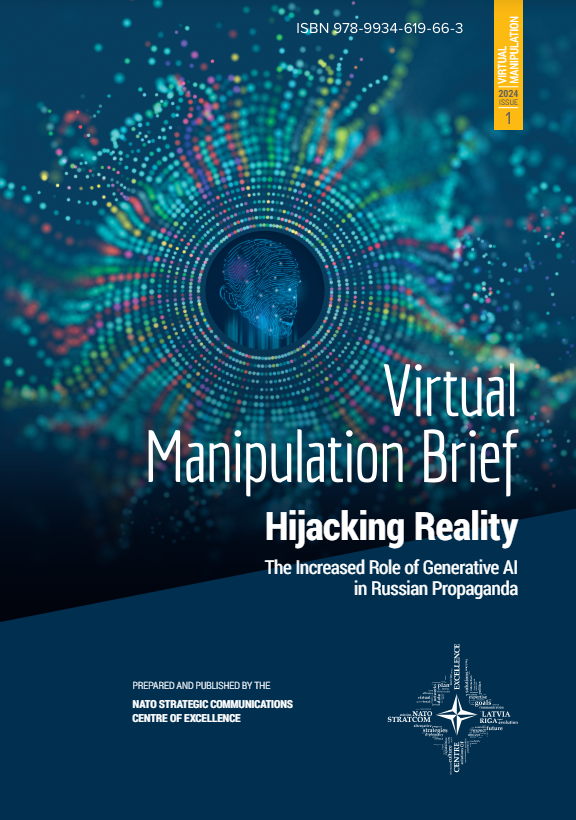Virtual Manipulation Brief - Hijacking Reality - The Increased Role of Generative AI in Russian Propaganda
Virtual Manipulation Brief - Hijacking Reality - The Increased Role of Generative AI in Russian Propaganda
Author(s): Not Specified Author
Subject(s): Media studies, Communication studies, Security and defense, ICT Information and Communications Technologies, Peace and Conflict Studies, Russian war against Ukraine
Published by: NATO Strategic Communications Centre of Excellence
Keywords: Russia; conflicts; security; information; media; propaganda; AI; social media; Ukraine; war;
Summary/Abstract: More than two years after Russia began its full-scale invasion of Ukraine, coordinated groups on social media continue to pose a significant threat, now compounded by the use of generative AI content, as detailed in this report. Our research highlights the mixed use of coordinated groups on social media, automated cross-referencing, and AI-generated content. We have identified 17 coordinated groups of accounts for 344 sources. The Virtual Manipulation Brief 2023/1 noted the limited capacity of social media platforms to manage coordinated inauthentic behavior and the increasing focus on AI in information operations. However, as of early 2024, various AI tools are widely used, potentially amplifying the effectiveness of information campaigns and reducing production and distribution costs. Large Language Models (LLMs) are actively used to create information threats. We have identified automated groups leveraging LLMs to generate noise and scrape websites to repost political news content. These groups extend their activities beyond websites, incorporating social media accounts for broader content distribution. They employ automated dynamic cross-referencing of network accounts, significantly amplifying the reach and impact of their threats without requiring additional funds. AI-generated comments on Twitter (now X) and Facebook simulate political discussions on sensitive topics. Attempts to prompt LLMs to respond to visual content have seen some success, posing a growing threat as LLMs become more adept at responding to visual media, potentially overwhelming users who may not verify such content.
- E-ISBN-13: 978-9934-619-66-3
- Print-ISBN-13: 978-9934-619-66-3
- Page Count: 15
- Publication Year: 2024
- Language: English
- eBook-PDF
- Sample-PDF

